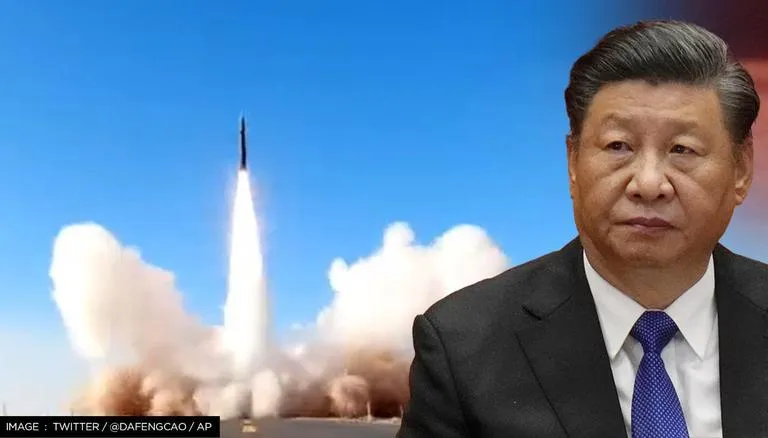In a recent development, the Chinese government launched a ballistic missile that resembled a Dongfeng (DF) -17 hypersonic weapon on Sunday, July 31. According to reports, it was launched on the eve of the 95th anniversary of the formation of the People’s Liberation Army of China (PLA). The DF-17 is a Chinese solid-fuelled road-mobile medium-range ballistic missile with the DF-ZF Hypersonic Glide Vehicle. The video released by the Chinese government showed a LIVE-fire launch of the missile from a transporter erector launcher. Meanwhile, the Chinese state media claimed that this hypersonic missile would be almost untraceable.
According to a Chinese military expert, Song Zhongping, the missile has the potential to be launched at any time, from any location. He claimed that the country’s Armed Forces demonstrated its combat capabilities in light of US House Speaker Nancy Pelosi’s potential visit to Taiwan. “The PLA shows its capabilities by declaring its readiness to take any retaliatory measures if the US persists in provocations,” the Global Times quoted him as saying. Further, Zhongping mentioned that the DF-17 can strike stationary as well as slowly moving targets.
Pelosi’s visit to Taiwan would impact China-US relations: Moscow
It should be noted here that China has continuously warned the US of “severe consequences” over House Speaker Pelosi’s visit to Taiwan. Chinese Foreign Ministry spokesperson Zhao Lijiang stated that such a visit would fundamentally jeopardise China’s sovereignty and territorial integrity, have a negative influence on the foundation of China-US relations and send a wrong message to Taiwan’s independence forces. Meanwhile, Pelosi, along with a Congressional delegation, embarked on her Asia trip on Sunday. According to her office, she is scheduled to visit Singapore, Malaysia, South Korea and Japan. However, there was no mention of Taiwan.
China asserts absolute sovereignty over Taiwan
Notably, China asserts absolute sovereignty over Taiwan, despite the island’s self-government for more than seven decades. However, Taipei has countered Chinese aggression by strengthening strategic ties with democracies, particularly the United States, which China frequently opposes. Further, China has often condemned the United States for maintaining official ties with Taiwan, claiming that such activities violate “China’s sovereignty and territorial integrity and contribute to regional instability.”

